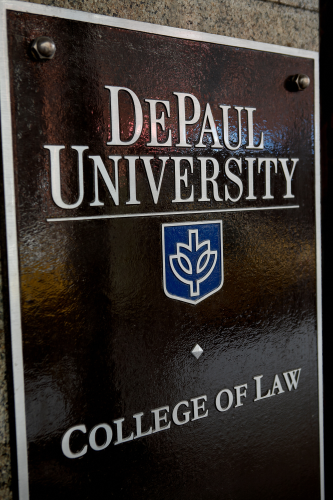WHO: The Center for Public Interest Law at DePaul University College of Law
WHAT: Will sponsor a symposium that includes three programs designed to examine immigration raids and their impact on people and communities. The programs will feature remarks by Erik Camayd-Freixas, a professor at Florida International University and a certified interpreter for the federal courts. He will discuss what he witnessed during the hearings of more than 300 undocumented detained workers following an Immigration and Customs Enforcement (ICE) raid in Postville, Iowa, this past summer. In July, Camayd- Freixas testified before the House Committee on Judiciary about the injustices that took place in Postville.
Also featured at the programs will be a priest who worked to help families impacted by the raids and a 13-year-old who was left behind in Iowa after his mother was deported to Mexico following the May raid of Agriprocessors, which processes kosher meat. The event is free and open to the public, but reservations are required. RSVP at CPIL@depaul.edu
WHEN: The symposium will take place in three parts on Nov. 18. From 11:50 a.m. to 12:50 p.m., a panel discussion on ICE raids and their impact on communities will be held at the DePaul University College of Law, 25 E. Jackson Blvd., Room 805. Camayd-Frexias and the Rev. Paul Ouderkirk will participate in the dialogue. From 3 p.m. to 4:30 p.m., a program that features stories of individuals affected by raids and how communities can survive and respond will be offered at the DePaul Center, 1 E. Jackson Blvd., Room 8005. Ouderkirk and the teen separated from his mother will speak during this program. From 6:00 p.m. until 7:30 p.m., an evening program will feature a presentation by Camayd- Freixas and will be held at Holland & Knight LLP, 131 S. Dearborn St., 30th floor. A reception will precede the presentation at 5:30 p.m.
BACKGROUND: Postville, Iowa, became the unlikely flashpoint for the immigration debate in May 2008 after federal agents conducted one of the largest immigration raids of its kind at a kosher meat processing plant there. Approximately 390 people, mostly Guatemalans and Mexicans who had established roots and became part of the community, were detained or deported. The raid came on the heels of complaints to authorities by immigrants of underage employees and abusive work conditions at the plant.

